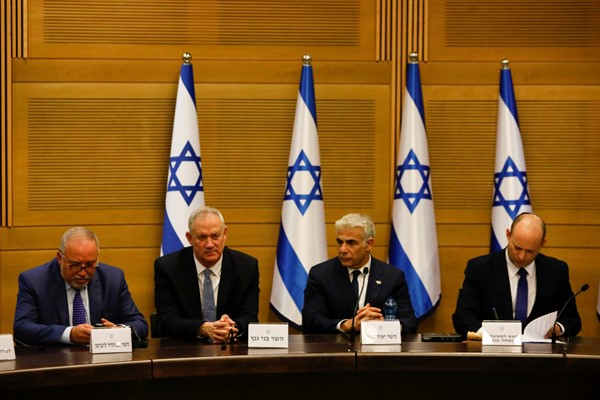After 12 uninterrupted years in charge, Benjamin Netanyahu is no longer Israel’s prime minister. A new coalition government comprising eight ideologically diverse parties has ended a prolonged period of political gridlock, albeit with a razor-thin majority of just one seat in the country’s legislature, the Knesset. Netanyahu, who had earlier decried “the greatest election fraud” in the history of democracy, later took to Twitter to promise supporters, “We’ll be back—and quicker than you think.”
The final weeks of the Netanyahu era saw a huge upsurge in violence between Israel and Palestinian factions in Gaza. An 11-day conflict with Hamas and other militant groups left more than 200 Palestinians and 13 Israelis dead, with thousands more injured and extensive damage to Gaza’s already fragile infrastructure. In the occupied West Bank and East Jerusalem, Israeli security forces used heavy-handed tactics to suppress Palestinian protesters, some of whom fought back by throwing rocks and other objects. And in Israel itself, Arab and Jewish citizens engaged in the most serious sectarian violence in years.
One might think the unrest would put negotiations with the Palestinians firmly back on Israel’s political agenda. But anyone expecting a change in direction from the new coalition will likely be left disappointed.

